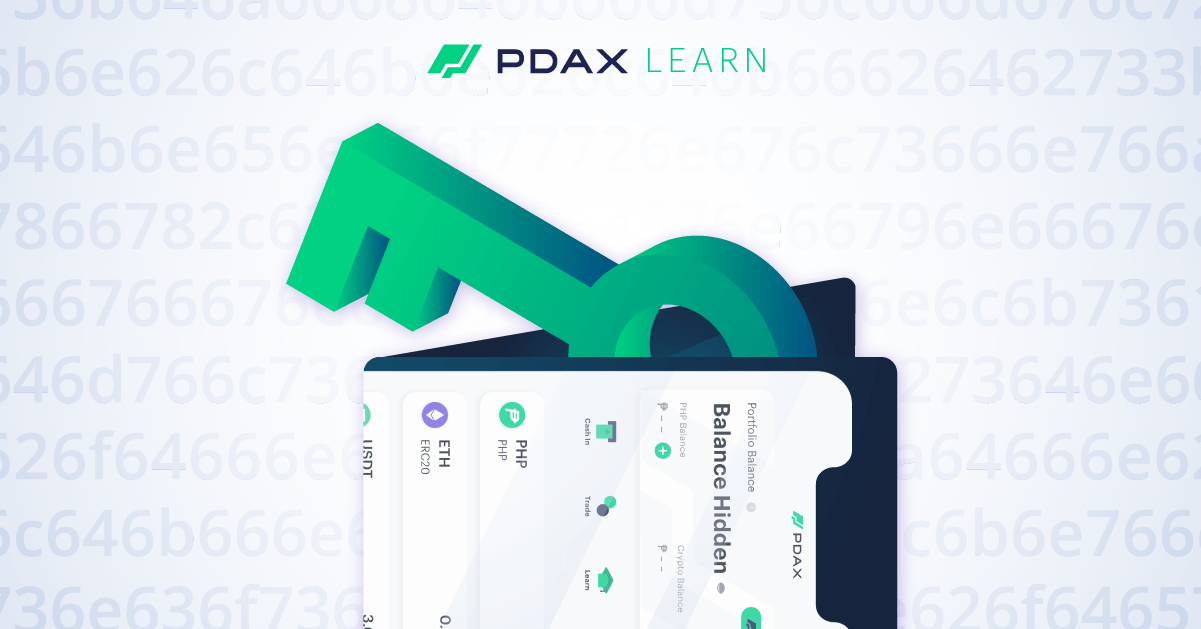TL;DR
Crypto wallets can be either custodial or non-custodial, and both allow you to store, manage, and transact with cryptocurrencies. But the two differ when it comes to the custody of the wallet’s private keys, which are used to access your cryptocurrencies. For custodial wallets, the private keys are entrusted to a third party such as an exchange or trading platform. While for non-custodial wallets, the private keys are held by the wallet owner.
What are crypto wallets?
To get started in crypto, the first thing you would need is a crypto wallet to store your cryptocurrencies in. However, unlike a physical wallet which actually contains your paper cash, a crypto wallet doesn't really “store” your crypto inside it, but only holds your private keys, which are used to access your financial data on the blockchain.
Think of a crypto wallet as more like an ATM card which doesn’t actually contain your money, but only gives you access to your funds when you enter the correct PIN. So even if you lose your card, your funds are actually still in the bank. That is, as long as you didn’t lose your PIN along with it.
Crypto wallets are similar in the sense that each wallet has its own unique private keys, which are a string of complex code which act like a password for accessing your data though your device. For convenience, private keys are made “human-readable” for users in the form of a string of 12 or more words called a “seed phrase”. And like ATM cards, whoever is in possession of your private keys or seed phrase, can also access your funds kept in the wallet.
Crypto wallets can be categorized in a number of ways, but one important classification when it comes to private keys is whether a wallet is “custodial” or “non-custodial”.
Who holds your keys?
A non-custodial wallet is a wallet wherein the private keys are held by the wallet owner. Because you hold the keys yourself, this means that you have complete control over your funds and are solely responsible for protecting them. Using a hardware wallet (also known as a cold wallet) and some browser-based or mobile phone wallets (also called as hot wallets) are examples of non-custodial wallets.
A custodial wallet on the other hand is a wallet wherein the keys are entrusted to a third party for convenience. Creating an account on a crypto exchange for example, will generate your own custodial wallet for keeping your cryptocurrencies while using the platform.
So why does this difference matter? Security and anonymity are among the foremost reasons for keeping a non-custodial wallet, since popular exchanges are also more frequently targeted by hackers and cybercriminals. However, while non-custodial wallets are generally considered to be more secure than custodial wallets, they may require a bit more experience and technical knowledge to set up and use.
Meanwhile, custodial wallets offer more convenience because they have user-friendly interfaces and provide easy access to the services offered by the platform, such as trading and buying cryptocurrencies. But since the private keys are held by a third party, the security of your funds depends on the measures set in place by the platform to protect them.
Custody of your private keys is an important thing to consider for every trader, since it equates to custody of your funds as well. More commonly, frequent traders prefer keeping their funds they intend to trade with on custodial wallets on exchanges for convenience, while those who plan to hold on to their assets for longer periods prefer keeping them in non-custodial wallets.
In summary, custodial wallets are convenient but require users to entrust their funds to a third party, while non-custodial wallets offer more security but may require a bit more effort to maintain. It's important to consider your own needs, activities and priorities when deciding which type of wallet is right for you. More importantly, it is wise to choose only a cryptocurrency exchange you can trust with your private keys, such as those with proper licensing and regulatory practices and with updated security features to keep your assets safe and secure.
Ready to start with crypto?
Start your trading journey with PDAX.
DISCLAIMER: The statements in this article do not constitute financial advice. PDAX does not guarantee the technical and financial integrity of the digital asset and its ecosystem. Any and all trading involving the digital asset is subject to the user’s risk and discretion and must be done after adequate and in-depth research and analysis.
About PDAX
PDAX is a BSP-licensed exchange where you can trade Bitcoin, Ethereum, and other cryptocurrencies directly using PHP!
Featured Posts
You might also like
3 Reasons to Invest in Retail Treasury Bonds
PDAX
February 15, 2024
What is digital collectible art?
PDAX
June 26, 2023
How does a digital collectible work?
PDAX
June 22, 2023
How to avoid becoming a money mule
PDAX
June 13, 2023
